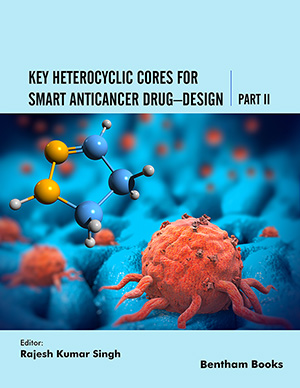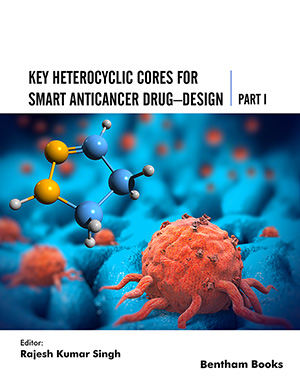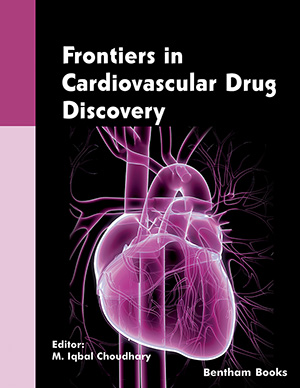
Abstract
Traditional healthcare systems in China, India, Greece and the Middle East have for centuries exploited venomous creatures as a resource for medicines. This review focuses on one class of pharmacologically active compounds from venom, namely peptide toxins that target ion channels. We highlight their therapeutic potential and the specific channels they target. The field of therapeutic application is vast, including pain, inflammation, cancer, neurological disorders, cardioprotection, and autoimmune diseases. One of these peptides is in clinical use, and many others are in various stages of pre-clinical and clinical development.
Keywords: Venom, peptide toxins, ion channels, pain, immunomodulation, autoimmune disease, Therapeutic toxins, Scorpion toxins, Conotoxins, Spiders toxins
Inflammation & Allergy - Drug Targets (Discontinued)
Title: Therapeutic Potential of Peptide Toxins that Target Ion Channels
Volume: 10 Issue: 5
Author(s): Evelyne Beraud and K. George Chandy
Affiliation:
Keywords: Venom, peptide toxins, ion channels, pain, immunomodulation, autoimmune disease, Therapeutic toxins, Scorpion toxins, Conotoxins, Spiders toxins
Abstract: Traditional healthcare systems in China, India, Greece and the Middle East have for centuries exploited venomous creatures as a resource for medicines. This review focuses on one class of pharmacologically active compounds from venom, namely peptide toxins that target ion channels. We highlight their therapeutic potential and the specific channels they target. The field of therapeutic application is vast, including pain, inflammation, cancer, neurological disorders, cardioprotection, and autoimmune diseases. One of these peptides is in clinical use, and many others are in various stages of pre-clinical and clinical development.
Export Options
About this article
Cite this article as:
Beraud Evelyne and George Chandy K., Therapeutic Potential of Peptide Toxins that Target Ion Channels, Inflammation & Allergy - Drug Targets (Discontinued) 2011; 10 (5) . https://dx.doi.org/10.2174/187152811797200696
| DOI https://dx.doi.org/10.2174/187152811797200696 |
Print ISSN 1871-5281 |
| Publisher Name Bentham Science Publisher |
Online ISSN 2212-4055 |
 50
50Related Articles
-
Polymeric Drug Delivery Approaches for Colon Targeting: A Review
Drug Delivery Letters Prebiotics and Probiotics in Inflammatory Bowel Disease: Where are we now and where are we going?
Current Clinical Pharmacology Small Molecular Inhibitors for the Treatment of Rheumatoid Arthritis: Progress so Far
Mini-Reviews in Medicinal Chemistry B Cells and Beyond: Therapeutic Opportunities Targeting Inflammation
Inflammation & Allergy - Drug Targets (Discontinued) Glucocorticoids Pharmacology: Past, Present and Future
Current Pharmaceutical Design SAGE Application in Hematological Research
Current Pharmaceutical Biotechnology Tissue-specific Glucocorticoid Signaling May Determine the Resistance Against Glucocorticoids in Autoimmune Diseases
Current Medicinal Chemistry Neurological Involvement as the Initial Manifestation in Primary Sjögren's Syndrome - A Case Report
Current Rheumatology Reviews Use of MHC II Structural Features in the Design of Vaccines for Organ-Specific Autoimmune Diseases
Current Pharmaceutical Design Polypeptide Delivery Across The Blood-Brain Barrier
Current Drug Targets - CNS & Neurological Disorders Leukocyte Function-Associated Antigen-1: Structure, Function and Application Prospects
Protein & Peptide Letters Para-Nonylphenol Induces Apoptosis of U937 Human Monocyte Leukemia Cells in vitro
Endocrine, Metabolic & Immune Disorders - Drug Targets Autoimmune Diseases and Infections: A Controversial Relationship
Current Immunology Reviews (Discontinued) Autoimmunity and Apoptosis - Therapeutic Implications
Current Medicinal Chemistry B Cell Modulation Strategies in Autoimmunity: The SLE Example
Current Pharmaceutical Design Stem Cell-Based Immunomodulation in Type 1 Diabetes: Beyond the Regenerative Approach
Current Pharmaceutical Design Thrombotic Management of Antiphospholipid Syndrome: Towards Novel Targeted Therapies
Current Vascular Pharmacology Gene Therapy Using IL-12 Family Members in Infection, Auto-Immunity, and Cancer
Current Gene Therapy Influence of Genetic Polymorphisms on Mycophenolic Acid Pharmacokinetics and Patient Outcomes in Renal Transplantation
Current Drug Metabolism Protein Engineering Studies for C-C Chemokine Receptor Type 2 (CCR2)
Current Enzyme Inhibition























